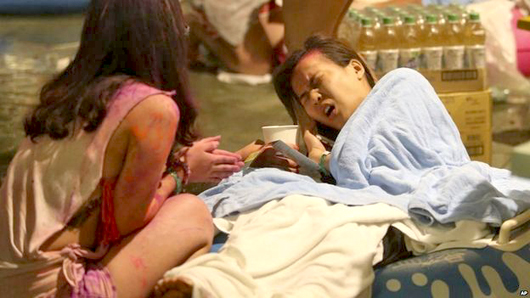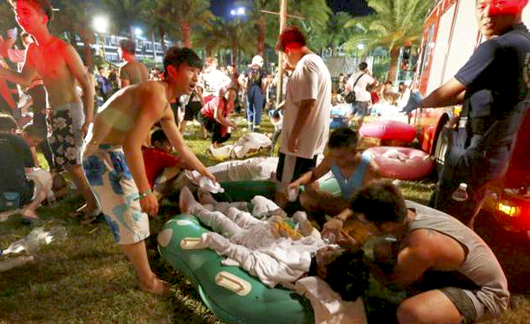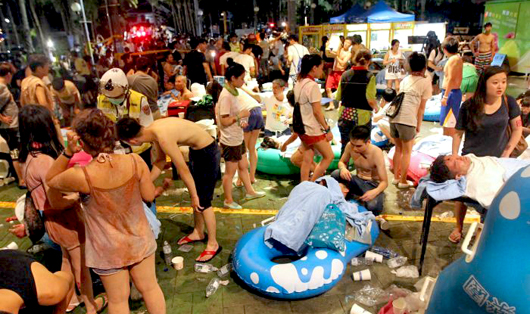Taipei, Jun 28: More than 500 people have been injured following an explosion at a water park outside Taiwan's capital Taipei after coloured powder being sprayed onto a crowd ignited.

Government officials said 516 people had been injured, 194 of them seriously, with more than 400 still in hospital.
"Our initial understanding is this explosion and fire ... was caused by the powder spray. It could have been due to the heat of the lights on the stage," said a spokesman for the New Taipei City fire department.
The injured more than doubled on Sunday after authorities tracked down hundreds of victims who took themselves to hospital, or were taken by others in the crowd.
Four of them are from the Chinese mainland and two are foreigners, health authorities said.
The blast happened as hundreds were reported to have gathered for a colour party at the coastal Formosa Fun Coast water park — a festival of dance and music where revellers are sprayed with clouds of coloured powder.
One male witness told local news channel CTI the fire started on the left side of the stage.
"At the beginning I thought it was part of the special effects of the party but then I realised there was something wrong and people started screaming and running."
One male student who sustained minor injuries described the scene as "hell".
"There was blood everywhere, including in the pool where lots of the injured were soaking themselves for relief from the pain," he told reporters.
His visibly shaken girlfriend added: "I saw lots of people whose skin was gone."
The fire was quickly extinguished, officials said.
Police said event manager Lu Chung-chi and four other event workers had been detained.
"They will be transferred to prosecutors for further investigation on charges of offences against public safety and negligence of duties that caused severe injuries," said New Taipei police spokesman Yen Po-ren.
Inhaled powder caused internal burns
Television images showed the stage on fire and crowds running away some of them only dressed in swimwear and covered in coloured powder.
Trails of bloody footprints leading away from the stage remained in the aftermath of the inferno, a reporter at the scene said.
Media reports said some victims had suffered burns to more than 40 per cent of their bodies.
A doctor treating 41 victims at one hospital in Taipei said 17 of them were "seriously burned".
"They all had respiratory system damage," he said.
Taipei health official Lee Lih-jong said the severely wounded were being treated in intensive care units at 37 different hospitals.
"The reason why the burns were so severe was that in addition to burns to the skin, there were also injuries caused by burns to the respiratory organs from the large amount of colour powder inhaled," he said.
"The next 24 hours will be critical for those severely injured."
Fire agency officials said it had been difficult for ambulances to access the site with many having to be carried away on stretchers.
"We feel sad and regretful about the accident," New Taipei mayor Eric Chu said.
"I've ordered the park to shut down immediately and be placed under a rigorous investigation."







Comments
Add new comment